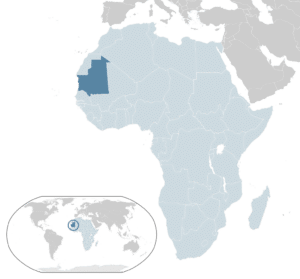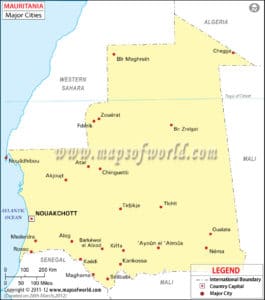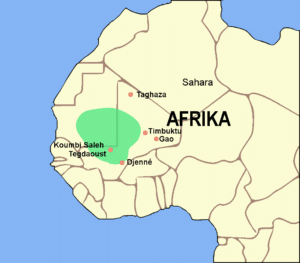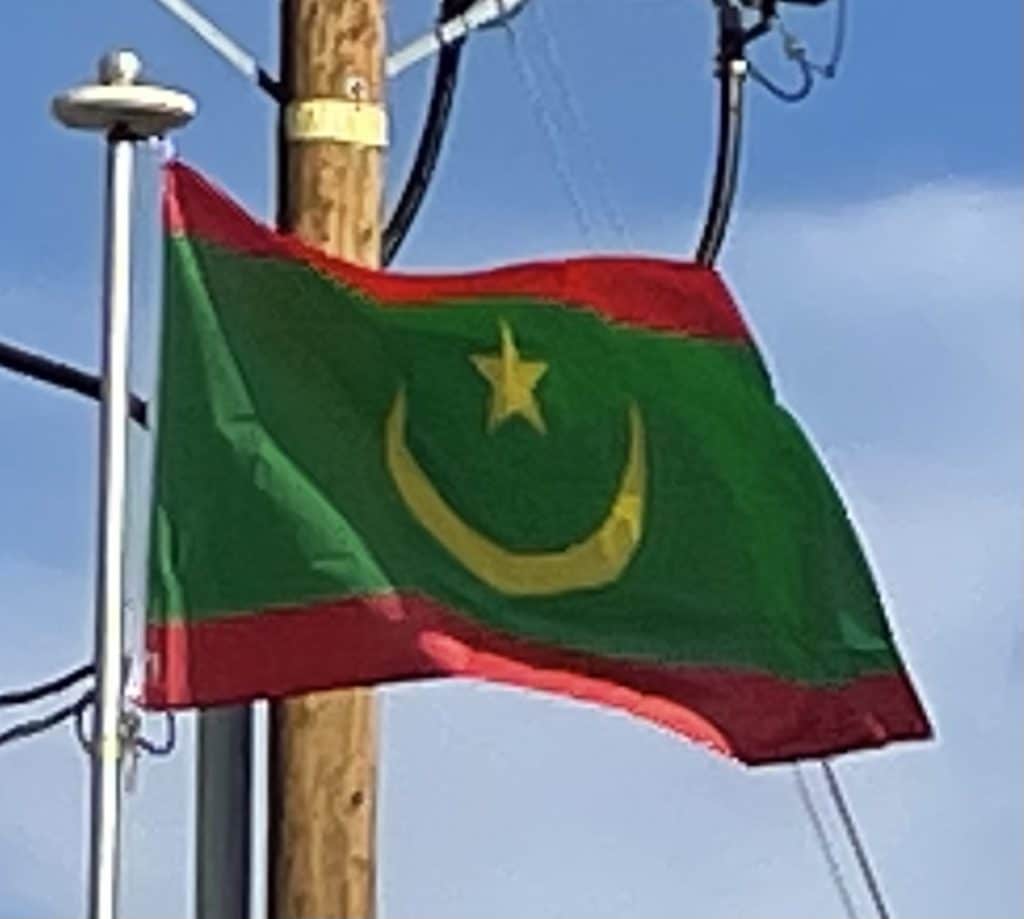Introduction:
Mauritania, officially the Islamic Republic of Mauritania, is a country in Northwest Africa. It is the eleventh largest sovereign state in Africa and is bordered by the Atlantic Ocean to the west, Western Sahara to the north and northwest, Algeria to the northeast, Mali to the east and southeast, and Senegal to the southwest.

The country derives its name from the ancient Berber kingdom of Mauretania, which existed from the 3rd century BCE into the 7th century CE in the modern-day Morocco and West Algeria. Prior to the Islamization of the area by Arab conquests in the 8th century, Mauritania was inhabited by Berbers since the 3rd century. Mauritania became a French colony during the European Scramble for Africa. Approximately 90% of Mauritania’s land is within the Sahara; consequently, the population is concentrated in the south, where precipitation is slightly higher. The capital and largest city is Nouakchott, located on the Atlantic coast, which is home to around one-third of the country’s 4 million people. The country’s official religion is Islam, with almost the entire population being Sunni Muslims. Arabic is the official language, with French also widely used due to its colonial history. Mauritania’s largest ethnic group is the Bidhan, or white moors who make up around half the population. The second-largest group is the Haratin, or black moors who make up approximately one-third of the population. The rest of the population consists primarily of various sub-Saharan peoples.
Despite an abundance of natural resources, Mauritania remains poor. The country’s economy is based on agriculture and livestock, and major industries include mining (particularly iron ore), petroleum, and fishing.

After becoming independent from France in 1960, Mauritania’s independence has been characterized by recurrent coups and periods of authoritarian military rule, the most recent of which was in 2008 and led by General Mohamed Ould Abdel Aziz. On 16 April 2009, Aziz resigned from the military to run for president in the 19 July elections, which he won. The 2019 Mauritanian presidential election was reported as the country’s first peaceful transition of power since independence.
Mauritania has been criticized for its poor human rights record, including for Mauritania’s continued practice of slavery, a result of the historical caste system, despite abolishing it in 1981 as the last country in the world to do so and criminalizing it in 2007. There have also been allegations of systematic torture by Mauritanian law enforcement.
History:
The ancient tribes of Mauritania were Berber and Niger-Congo people. The Bafours were primarily agricultural, and among the first Saharan people to abandon their historically nomadic lifestyle. With the gradual desiccation of the Sahara, they headed south. Many of the Berber tribes claimed Yemeni (and sometimes other Arab) origins. There is little evidence to support such claims, but a 2000 DNA study of Yemeni people suggested there might be some ancient connection between the peoples.

Other peoples also migrated south past the Sahara to West Africa. In 1076 the Almoravids conquered the large area of the ancient Ghana Empire. The Char Bouba war (1644–74) was the unsuccessful final effort of the peoples to repel the Yemeni Maqil Arab invaders. The invaders were led by the Beni Hassan tribe. The descendants of the Beni Hassan warriors became the upper stratum of Moorish society. Hassaniya, a bedouin Arabic dialect that derives its name from the Beni Hassan, became the dominant language among the largely nomadic population.
Colonial History:
France laid claim to the territories of present-day Mauritania from the Senegal River area and northwards, starting in the late 19th century. In 1901, Xavier Coppolani took charge of the imperial mission. Through a combination of strategic alliances with Zawaya tribes, and military pressure on the Hassane warrior nomads, he managed to extend French rule over the Mauritanian emirates. Trarza, Brakna and Tagant were occupied by the French armies in 1903–04, but the northern emirate of Adrar held out longer, aided by the anti-colonial rebellion (or jihad) of shaykh Maa al-Aynayn, as well by insurgents from Tagant and the other regions. Adrar was finally defeated militarily in 1912, and incorporated into the territory of Mauritania, which had been drawn up and planned in 1904. Mauritania was part of French West Africa from 1920, as a protectorate and, then, a colony.
